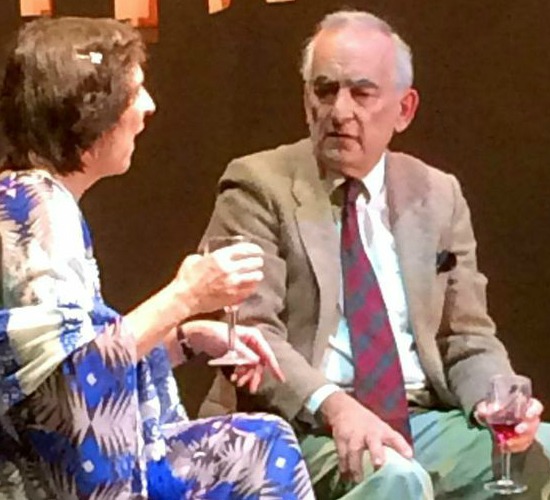
A good friend of Jansons, agent Roger Saper, recently took the lead role in a staging of the well know play, A Man For All Seasons. Andy, Lynda and Patricia went along to see his performance at the Wycombe Swan Theatre.
A Man For All Seasons was written by the Manchester playwright Robert Bolt. He wrote the play in 1960, which was mounted on the London stage that same year and in New York in 1961. Bolt went on to write the screenplays for director David Lean’s famous films Lawrence of Arabia (1962) and Dr. Zhivago (1965). He adapted A Man for All Seasons for director Fred Zinnemann in 1966, and he won Oscars for both Zhivago and A Man for All Seasons. The play is based on the historical story of Henry VIII’s unfortunate marriage to Catherine of Aragón, as summarised below.
In 1509, King Henry VIII married his brother’s widow, Catherine of Aragón (Spain), thereby (temporarily) cementing his tenuous alliance with Spain. In order to allow this illegal union between a man and his brother’s widow, the pope granted Henry a dispensation (an exemption from Catholic law). After several years of marriage, unfortunately for Henry and everyone else involved, especially Catherine, the couple had not produced any male offspring and, in any case, the king had fallen in love with the hopefully more fertile Anne Boleyn. Henry therefore sought to overturn the pope’s previous dispensation in order to annul his marriage to Catherine and enable him to marry Anne. Citing Leviticus 18—“Thou shalt not uncover the nakedness of thy brother’s wife”—Henry requested a second dispensation from the pope, this time for a divorce from Catherine. Henry argued that Catherine’s inability to produce a male child proved that their marriage was wrong. When Pope Clement VII refused to dispense with his previous dispensation and allow the divorce, Henry dismissed his advisor, Cardinal Wolsey, on whom he had depended to gain this second dispensation. Henry then appointed Thomas More as Lord Chancellor of England in Wolsey’s place in 1529.
Meanwhile, Henry and Thomas Cromwell, previously Wolsey’s general manager, enacted legislation to undermine the authority of the Catholic Church in England. As soon as the pope assented to Henry’s appointment of Thomas Crammer as Archbishop of Canterbury, Crammer quickly authorized Henry’s divorce and remarriage. As a result, Henry was excommunicated from the Catholic Church. In 1534, Parliament enacted the Act of Supremacy, which established Henry as the head of the Church in England and eliminated the authority of the pope.
Sir Thomas More was beheaded on July 6, 1535, for failing to swear to Henry’s oath of supremacy. For his courage and commitment, More was sainted on May 19, 1935. A humanist and a friend to Erasmus, More was also author of Utopia (1516), a novel that pictured an ideal society founded solely on reason. More was a true Renaissance man, “a man for all seasons.”
This production is a contemporary adaptation. In the words of Nick Andrews, the director, ‘The play is so pointedly relevant to our own time, in which religion no longer holds the place it once did and a man’s ‘word’ carries less weight than it used to, because Bolt has departed from historical accuracy by making his More a hero of the more modern concept of individual conscience. More has faith but finds God’s will impossible to fathom and consequently bases his own actions on his own conscience and the law. We will witness More’s touching faith in the power of the law and conscience come under the most severe pressure.’
Roger turned in a great performance the role of Sir Thomas More. The Wycombe Swan is a prestigious theatre and it must have been hard work to be the main character in such a large production, so well done Roger. We look forward to your next role.














